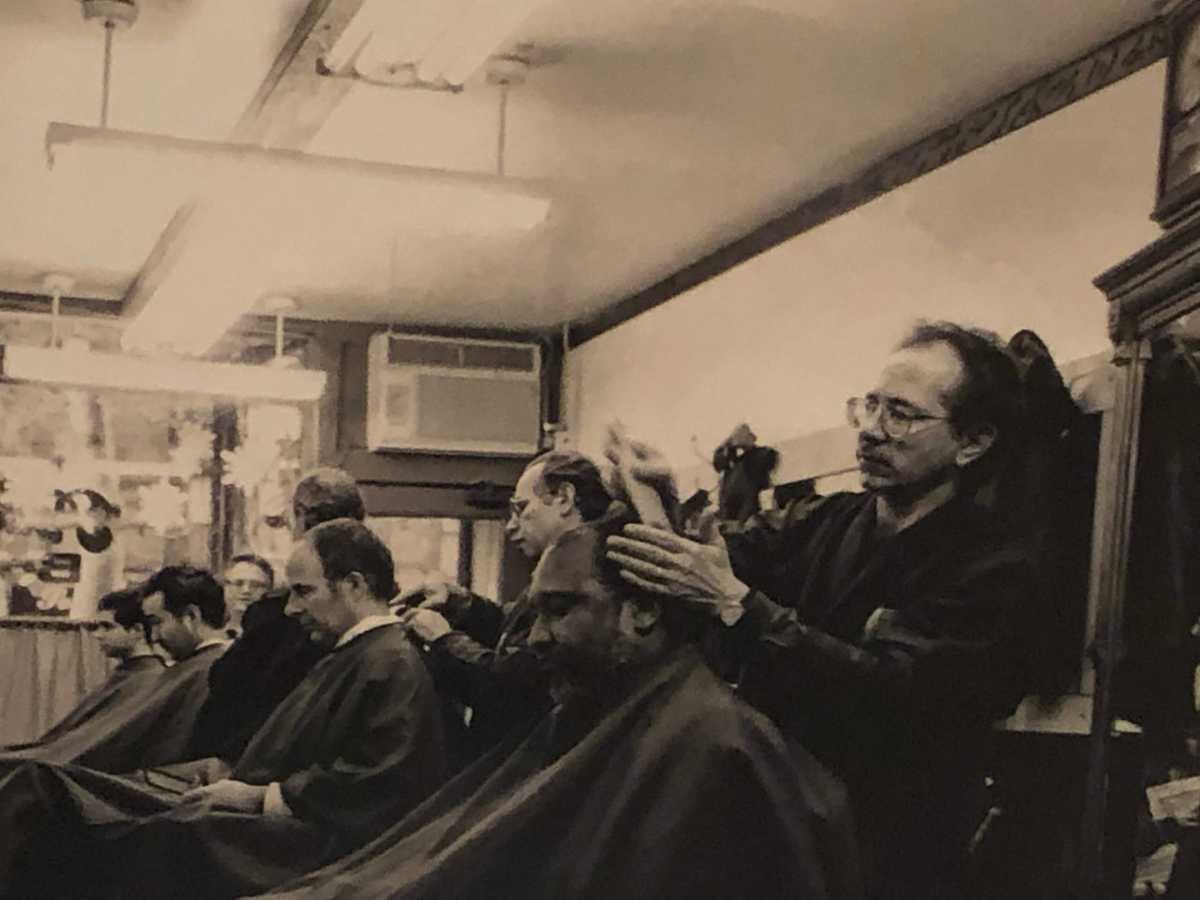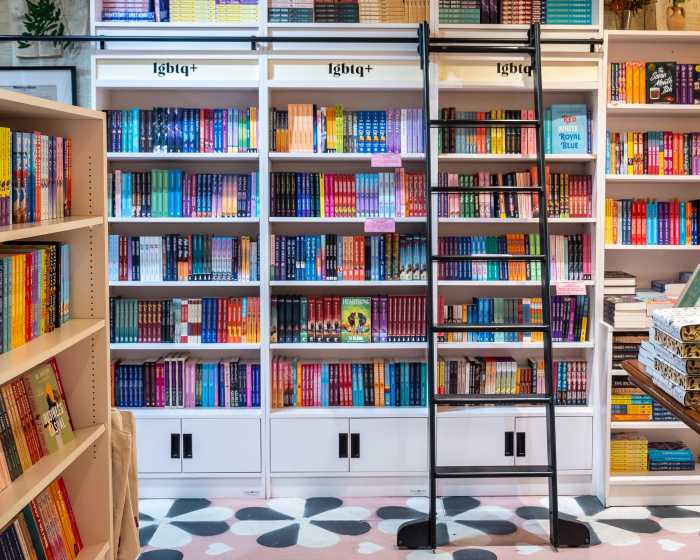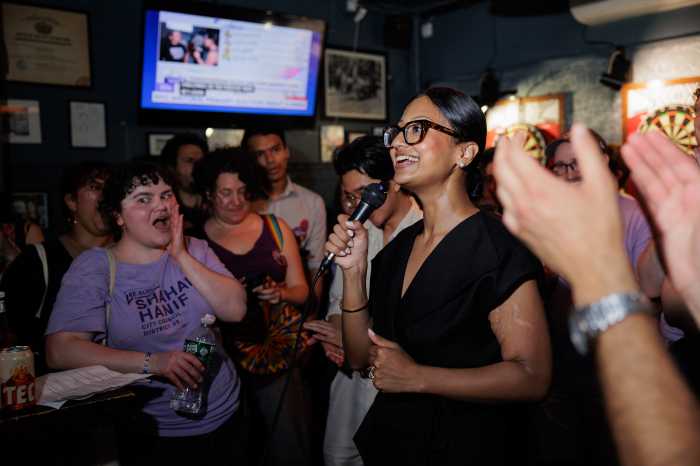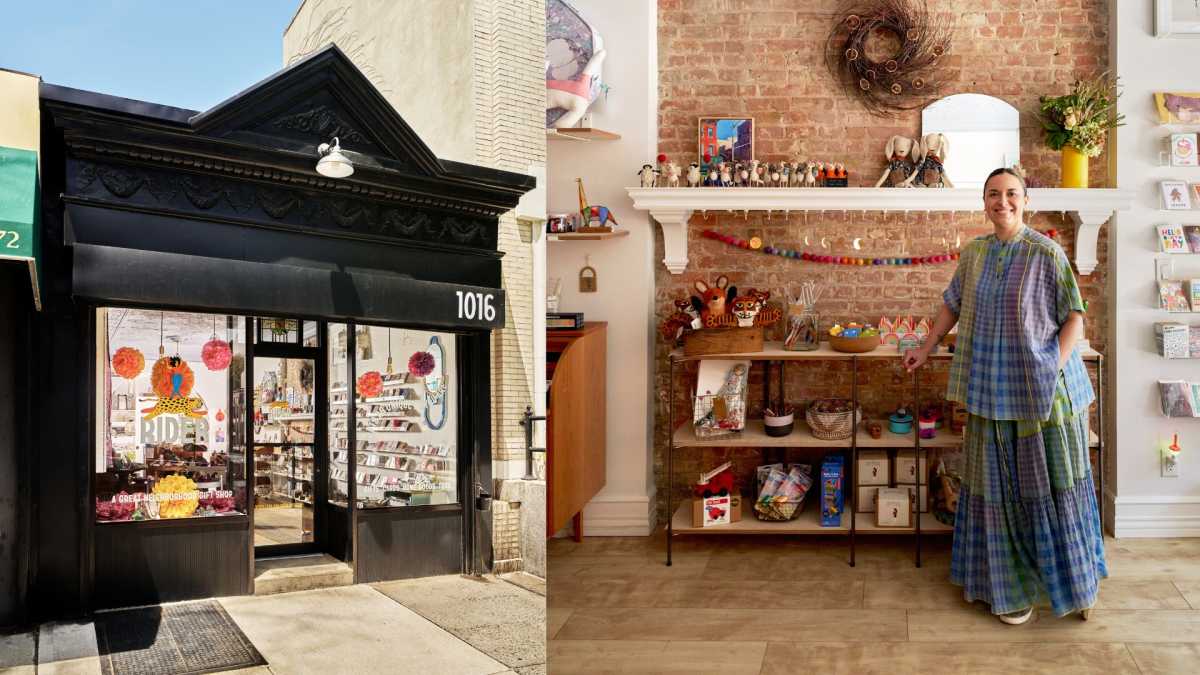In sunny 1903, Maurice Garin won the inaugural Tour de France, Prussia became the first nation to require mandatory drivers licenses, the original Teddy bear was exhibited at the Leipzig Toy Fair, and a new business debuted on Seventh Avenue — Park Slope Barber.
The newly opened barbershop would go on to become one of the neighborhood’s oldest continuously operated businesses, weathering recessions, changing fashions, and radical demographic shifts, as time worked its magic around a business that changed very little over the years. Customers were still seated in antique leather barber chairs and accepted change from a 100-year-old brass cash register, although one ancient appliance, used to heat up towels, sat unused in recent decades — the Health Department banned them in the 1960s after they found barbers were using them to keep their sandwiches warm.
That all changed last month, however, when the business’s sole remaining proprietor, one of three brothers who once labored together over an uncountable legion of shaggy mops, found himself cutting hair without his siblings’ company, and decided it was time to hang up his shears.
“I always felt it was my brother’s place,” said John Fiumefreddo, 74, who worked in the shop for over 50 years. “Being there by myself, I just got these feelings.”
The Fiumefreddo brothers — including Angelo Fiumefreddo, who passed away two years ago at the age of 79, and Vito Fiumefreddo, who retired to Florida five years ago — inherited the barbershop from their father, who purchased the storefront in 1948, before leaving it to Angelo in the wake of his own retirement. The barbershop had first opened 45 years earlier, although you wouldn’t know it by the awning, which declared its opening as 1904, nor by the painting in the window, which advertised its opening date as 1906.
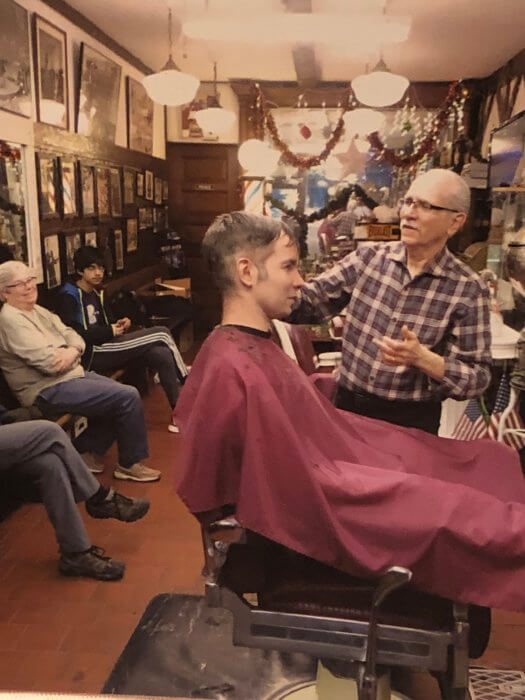
“The guy made a mistake and we said ‘well what’s the difference,'” said Fiumefreddo.
Even before taking up their father’s mantle, the Fiumefreddo brothers, who grew up down the block from Park Slope Barber’s storefront between Third and Fourth streets, labored there as teens, and remained young men when the great barber-depression of the 1960s — the hippie movement — swept the nation, leading impressionable young men to eschew buzz cuts in favor of wild, unkempt manes.
The siblings didn’t favor the stylings of the counter-cultural movement themselves — John Fiumefreddo described it as “sloppy” — but the barber credits their relative youth as compared to the owners of more old-fashioned barbershops for their ability to weather the dwindling demands for a trim.
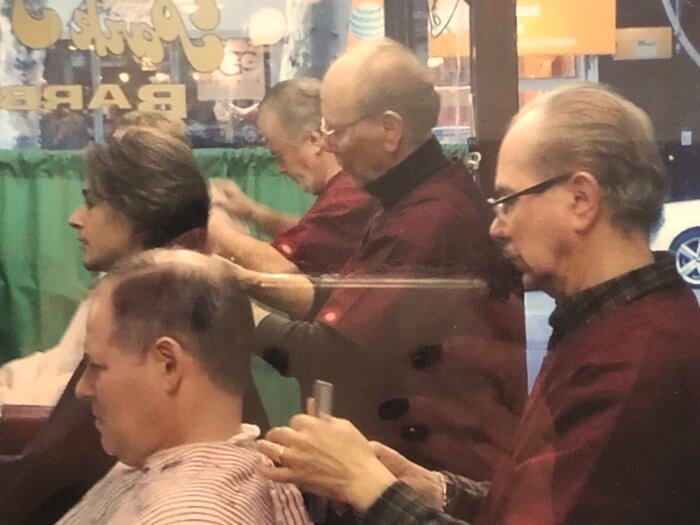
And as many older barbers shuttered, the Fiumefreddos adapted, embracing this newfangled idea of a “unisex salon,” according to John Fiumefreddo, who said the Park Slope Barber attracted its fair share of female customers despite the shop’s no-frills style.
“We even did a few permanents, but those were far and few between,” he said.
Of course, the hippie movement didn’t last forever, and after cutting hair for 50 years, Fiumefreddo claims a modicum of perspective on the evolution of men’s hairstyles, which he says are cyclical in nature.
“What goes around comes around,” he said. “Right now you have a lot of hairstyles similar to those in the thirties and forties, where it’s short and neat on the sides and longer on top.”
From their perch in the heart of Park Slope, the barbers were front-row spectators to the phenomenon of gentrification, watching as a working-class enclave transformed into the bougie, stroller capital of Brooklyn, stripping out some of the area’s character in the process, according to John Fiumefreddo.
“When I was there it was a neighborhood, now it’s just a place to come to,” he said. “It doesn’t have that neighborhood feel anymore.”
But even as the neighborhood changed, Park Slope Barber remained much the same. Many of the same old regulars continued to crowd into the shop — even if they didn’t need a trim — and local musicians occasionally hauled their guitars in to share a tune, Fiumefreddo said.
And while the barbershop is closed today, Fiumefreddo says there are some rumblings within the family that a younger relative may take the reins, but as of now, nothing is certain other than his retirement.
“You never know, it might come back again,” he said. “It would be nice.”


